Iran is competing in more than half of the competitions at the 2016 Rio de Janiero Paralympics, with 111 athletes entered in 12 fields. Numbers are up since Iran last competed in London with 72 participants, but there is no guarantee that Iran’s medal wins will increase proportionally.
The 2012 London Paralympics went well for Iran. Iran's team returned with 10 gold, seven silver, and seven bronze medals, whereas competitors at the 2008 Beijing Paralympics had claimed only one gold and one bronze. Four years earlier, at the 2004 Athens Paralympics, Iran won six gold, three silver, and 13 bronze medals.
Below, IranWire looks at some of the hopefuls.
Siamand Rahman, Powerlifting
It is sometimes said that Siamand Rahman only knows how to win gold medals. Since 2008, he has competed in all Asian games, international tournaments and the Paralympics. He has won four gold medals from world championship games, two from the Asian Games, two at international tournaments against Jordan and Libya, and one from the 2008 London Paralympics. He is the current International Paralympics Committee (IPC) Powerlifting World Record holder in the 107+ kilogram category.
Rahman was born 1988 with a congenital abnormality that affected his legs. As a child he refused help to walk and preferred to manage on his own. But as he grew up and gained weight, he was forced to rely on a wheelchair.
Rahman is reputed to love Iranian beef stew. He is cheerful and constantly boosts his teammates’ morale. He is now aiming for a 305 kg championship. He has promised reporters in Rio that he will not lift under 300 kg.
Zahra Nemati, Archery
The Guardian has praised Zahra Nemati as a trailblazer who “wins hearts and minds.” Born in 1985, Nemati first competed as a taekwondo athlete. But in 2003, a car accident ended her taekwondo dreams. Her spine was seriously injured and she lost use of her legs. While undergoing physiotherapy, she fell in love with Raham Shahabipour, who later became her husband. “Like me, he had been paralyzed in an accident and we could understand each other very well,” Nemati recalls. Shahabipour encouraged Nemati to continue her athletic career, and she says his support completely changed the course of her life.
The couple married in London during the 2012 Paralympic Games, in which she won a gold medal.
Nemati is now the first Iranian woman ever to have competed in both the Olympics and the Paralympics. “I wanted to show the Iranian youth, especially girls, that Iranian women are no worse than others, and we may even win the Paralympics and receive medals,” she said after winning in London. “I wanted to break the stereotype, and I’m very glad that I did it.”
At the Rio Olympics, Nemati was eliminated early on, but her chances at the Paralympics still look good.
Peyman Nasiri, Track and Field
Peyman Nasiri returned from the 2012 London Paralympics with a gold medal in the 1500-meter race. He is also a two-time winner of the 1,500-meter race at the IPC World Championships in Christchurch, New Zealand in 2011, and in Lyon, France, in 2013.
Many Iranians know Nasiri because of a political gesture he made after the 2014 Asian Games in South Korea. Upon receiving a congratulatory visit in his hometown of Kerman from the Revolutionary Guards General Ghassem Soleimani, who now commands Iranian forces and Shia militias in Iraq and Syria, Nasiri gave the general his gold medal in exchange for a ring. “The bravery of Commander Soleimani deserved the gold medal,” he told the media.
Nasiri was born in 1980 with a congenital condition affecting his legs. Even as a child, he would not allow his disability to prevent him from running with other children.
“My brother was a professional runner,” Nasiri says, recalling the event that encouraged him to compete in track and field. “I was 13 when my brother Pejman had an important match. His coach suggested that I compete as well. Pejman was near the finish line when I got behind him. My brother was a very good runner and was surprised that somebody had caught up with him. When he saw me he waited so we could cross the finish line together. This shared victory overjoyed me and made me look more seriously at running.”
Mohammad Khalvandi, Men's Javelin Throw
Mohammad Khalvandi, who was born in 1990, says that he loves journalism and wants to become a reporter after retiring from sports. He also loves football, but has never tried to become a footballer.
He has won three gold medals at international events. The first was the 2012 London Parlympics, followed by the IFC Athletics World Championships in Lyon in 2013 and Doha, Qatar, in 2015.
In recent months, Khalvandi has succeeded in breaking his own records and has a good chance of repeating his success at the Paralympics. “I want to have a good time in Rio, and for me a good time means a gold medal,” he says.
Javad Harandi, Discus and Javelin Throw
Born in 1984, Javad Harandi suffers from a minimal form of cerebral palsy.
Hardani is known as the “passe-partout”-- or master key -- of Iran’s Paralympic Track and Field Team because of his versatility as an athlete. He doesn’t particularly like the name, and prefers to be known as a discus thrower. “I want to do what I specialized in,” he says. But this has not stopped Iran’s team from placing him in more than one field.
Hardani won a gold medal for discus throwing in the 2008 Beijing Paralympics, and another gold in the same field in 2012. That year, he also won a bronze in London for shot put.
At Rio, Harandi will compete as a javelin thrower. His teammates joke that they might ask him to join the running competition as well. “The Rio Paralympics is no place for joking,” Hardani says.
Sitting Volleyball Team
The International Paralympics Committee (IPC) used to call this team “permanent champions.” Since 1988, when the team competed for the first time at the Seoul Paralympics, it has come first five times and second twice.
The Iranian Sitting Volleyball Team has won four consecutive championships at the Paralympics. First in Seoul in 1988, then in Barcelona in 1992, then in Atlanta in 1996, and finally in 2000 in Sydney. It won the silver medal at the 2004 Athens Paralympics.
When they returned from Athens, a TV sports anchor asked then-team captain Hadi Rezaei who was the why they lost the gold. Rezaei retorted, “Did you ask us even one time the reasons when we became champions of the Paralympics four times? And now you are asking why we came in second?” Rezaei is now the team’s head coach.
Despite all their successes, the team’s victories have often been downplayed by Iranian sports officials. In its early years, many members of the team were veterans of the Iran-Iraq war, but Hadi Rezaei, himself an injured veteran, decided to bring in younger players. At 2008 Beijing Paralympics, they won gold. In London, they came in second.
The team has faced financial problems. In July, Davoud Alipourian, the team’s current captain, told ISNA news agency about the discrimination Iranian Paralympics athletes face. “I don’t know why we are not qualified for the [cash reward given to Olympics athletes],” he said. “But we will do our best for the championship.”
The Seven-Member Football Team
Back in 2012, the Iranian Seven-Member Football Team faced a stroke of bad luck. They could not get visas to go to London because Britain had closed its Tehran embassy following an attack on its premises by a crowd of hardline protesters.
The team was already the Asian champion, but was unable to compete at the qualifying games.
But then, good luck knocked. When the Russian team was banned from the Rio Paralympics for doping, the IPC invited Iran to Denmark for the qualifying games. Sixteen teams competed for one opening, and Iran won.
Now the team is in Rio, and the players say that they are impatiently waiting to compete against the British team.
visit the accountability section
In this section of Iran Wire, you can contact the officials and launch your campaign for various problems




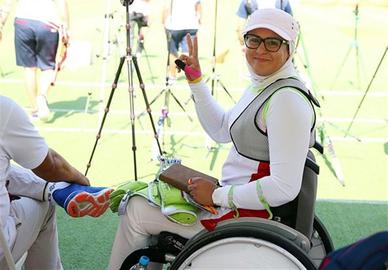
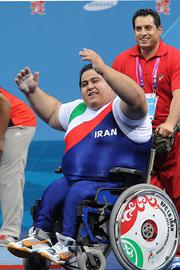
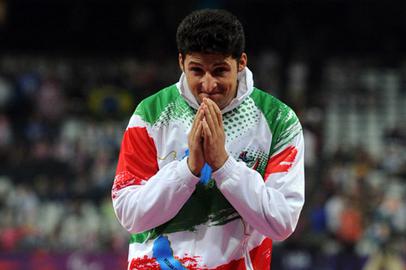
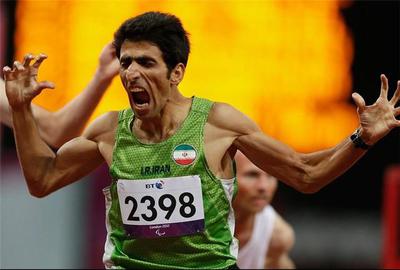
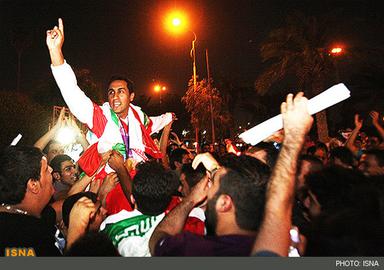
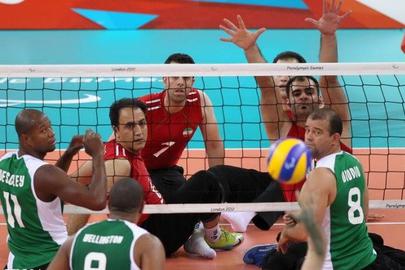




















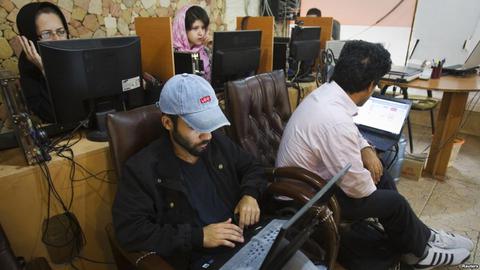
comments